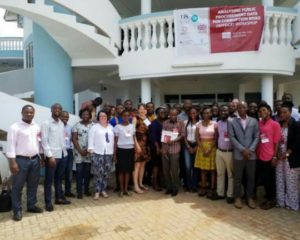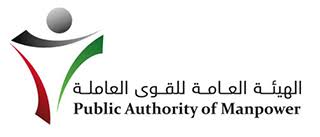 A University lecturer has tasked parliament to pass the Right to Information (RTI) Bill as an ideal way of demonstrating its commitment towards transparency and accountability.
A University lecturer has tasked parliament to pass the Right to Information (RTI) Bill as an ideal way of demonstrating its commitment towards transparency and accountability.
According to Dr Liz David-Barrett of the University of Sussex, UK, the critical aspect of transparency was giving people the right to information to enable them demand accountability and to check corrupt practices particularly in public procurement.
She was speaking during a two-day training workshop on “Analysing Public Procurement Data for Corruption Risks” which ended at Biriwa in the Central Region with a call on Governments to open up data on procurement and other contracting processes.
She challenged the Government of Ghana to open up its contracting and procurement data to consolidate its anti-corruption commitment.
The workshop organised by the University of Sussex and the African Institute for Mathematical Sciences (AIMS) Ghana, was under the leadership of the Endowed Humboldt Research Chair, Prof. Olivier Menoukeu Pamen.
It was supported by the Alexander Von Humboldt Foundation and the German Ministry of Education and Research and attended by more than fifty researchers from ten African countries.
The training provided the platform for Mathematicians, Political Scientists and Civil Society Activists to explore the potential of using open-source software, such as R-InStat on the datasets of the World Bank-funded contracts in over one hundred countries.
It formed part of a major research project funded by the British Academy and the Department for International Development (DFID), in collaboration with Dr Mihaly Fazekas of the University of London as part of its Anti-Corruption Evidence Program in curbing corruption in public procurement.
Distinguished facilitators from prestigious universities and organisations in Europe and Ghana introduced participants to corruption risks in public procurement and red flag indicators of corruption risks and how to use R-Instat to analyse procurement data.
She indicated that curbing corruption would be problematic especially in public procurement if governments were not committed to open up data and sharing of information.
Dr David-Barrett consequently called on Civil Society Organisations (CSOs), international institutions and the citizenry to demand such data and put pressure on the government to make contracting as well as its partnerships open.
Dr David-Barrett said availability of data and openness in the procurement process would mean that more analyses could be done to know where the big corruption lied and to give a direction for investigation so as to hold government and public officials accountable.
Danny Parsons of the Mathematical Institute of the University of Oxford explained that though cases and their investigations could be very successful, more resources were needed to investigate a single case of corruption.
He, however, implored governments to combine the analyses of mathematicians and statisticians in their efforts to fight corruption.
“Opening up the data could mean, you can look at the whole set of contracts on a large scale not looking for specific cases, but looking for a pattern which can inform where resources should be channel to for more investigations” he explained.
He said Governments stood to benefit from opening up their data because more people looking at the data also improved efficiency in the system.
Professor Menoukeu Pamen explained that the R-Instat was able to analyse procurement data, show the characteristics and pull out the indicators for corruption in the public or private sector.
Source: GNA
–If you liked this story or have a story to share, you can contact GhanaMatters.com via social media or write to us through the emails provided for an exclusive coverage. Email: info@ghanamatters.com, or editor@ghanamatters.com. —



